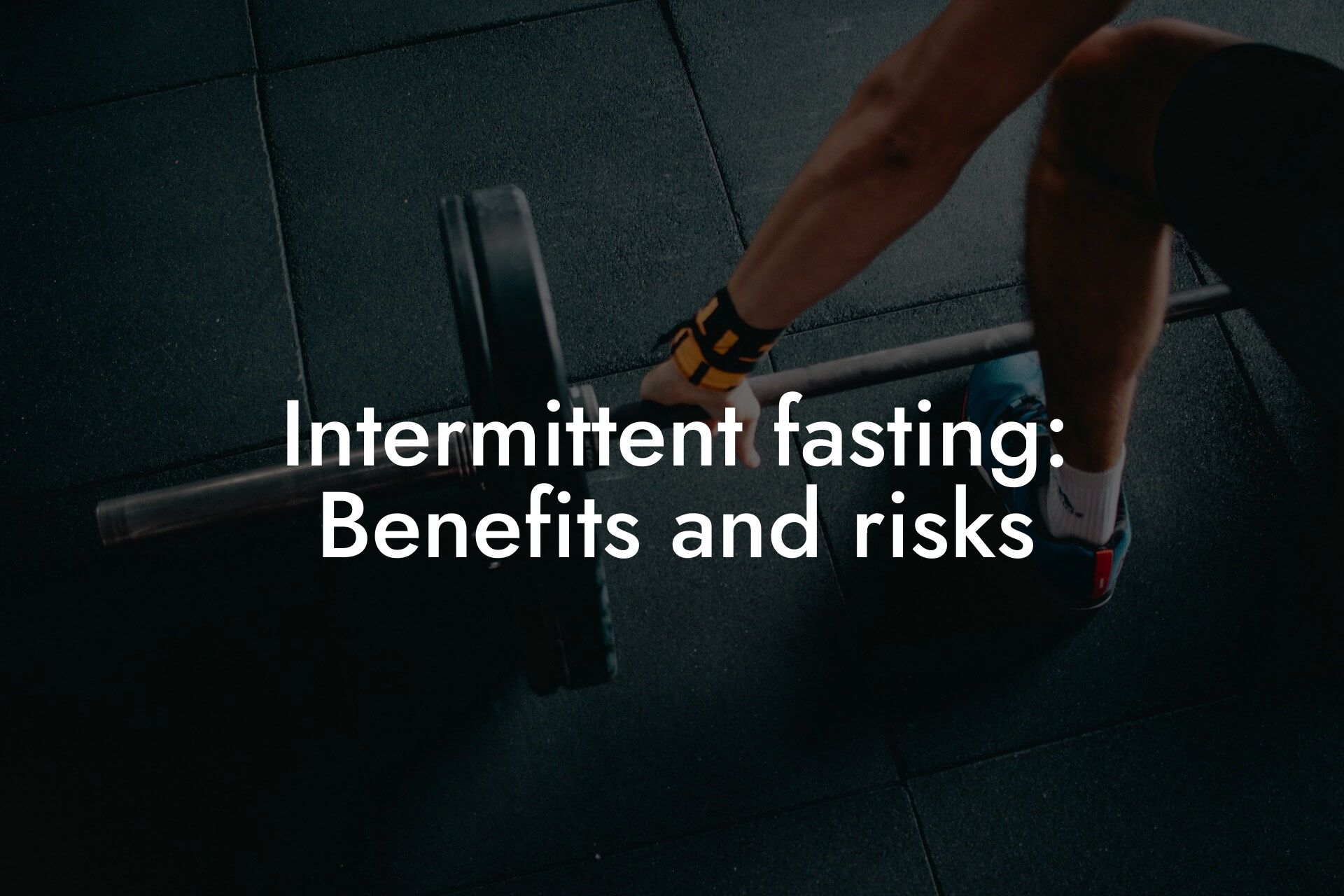As a high-earning professional, you understand the importance of maintaining a healthy and fit physique. A well-planned meal prep strategy is crucial to achieving your body composition goals, whether it's building lean muscle, losing body fat, or improving overall health. In this article, we'll guide you through the essential steps to meal prep like a pro and provide you with the knowledge you need to take your physique to the next level.
Table of Contents
Understand Your Body Composition Goals
Before you start meal prepping, it's essential to understand your body composition goals. What do you want to achieve? Do you want to lose body fat, build lean muscle, or maintain your current physique? Knowing your goals will help you create a tailored meal prep plan that addresses your specific needs. At Tano Performance Group, we use DEXA scanning to provide our clients with a comprehensive body assessment, giving them a clear understanding of their body composition and helping them set realistic goals.
Calculate Your Macronutrient Needs
To meal prep effectively, you need to calculate your daily macronutrient needs. Macronutrients are the three main categories of nutrients that provide energy: protein, carbohydrates, and fats. The ideal macronutrient ratio varies depending on your goals, but a general rule of thumb is:
Protein: 1.6-2.2 grams per kilogram of body weight
Carbohydrates: 2-3 grams per kilogram of body weight
Fats: 0.5-1 gram per kilogram of body weight
For example, if you weigh 70 kilograms, your daily macronutrient needs would be:
Protein: 112-154 grams
Carbohydrates: 140-210 grams
Fats: 35-70 grams
Plan Your Meals
Once you've calculated your macronutrient needs, it's time to plan your meals. Aim to eat 4-6 meals per day, spaced out every 2-3 hours. This will help keep your muscles fueled and support your body composition goals. Consider the following meal planning tips:
Include a source of protein with every meal
Choose complex carbohydrates such as brown rice, sweet potatoes, and whole grains
Add healthy fats like avocado, nuts, and seeds to your meals
Drink plenty of water throughout the day
Shop Smart
With your meal plan in place, it's time to shop for groceries. Focus on whole, unprocessed foods like:
Lean proteins: chicken, fish, turkey, beef, and lamb
Vegetables: broccoli, spinach, bell peppers, and carrots
Fruits: apples, bananas, berries, and citrus fruits
Whole grains: brown rice, quinoa, whole wheat bread, and oats
Healthy fats: avocado, nuts, seeds, and olive oil
Prep Your Meals
Meal prep is all about convenience and efficiency. Here are some tips to help you prep your meals like a pro:
Designate a meal prep day: Choose one day a week to prep all your meals for the next few days.
Use containers: Invest in a set of containers that are easy to clean and transport.
Cook in bulk: Cook large batches of rice, chicken, and vegetables to save time during the week.
Label and date your meals: Keep track of what you've prepped and when it was cooked.
Stay Consistent
Consistency is key when it comes to meal prep. Aim to meal prep at the same time every week and stick to your plan as much as possible. Remember, meal prep is a journey, and it's okay to make adjustments as you go. Don't be too hard on yourself if you miss a meal or two – simply get back on track and keep moving forward.
Monitor Your Progress
Regularly tracking your progress is crucial to achieving your body composition goals. Take progress photos, measurements, and track your weight and body fat percentage. Use this data to adjust your meal prep plan and make changes as needed. At Tano Performance Group, we use DEXA scanning to provide our clients with a comprehensive body assessment, helping them track their progress and make data-driven decisions.
Seek Professional Guidance
Meal prep can be overwhelming, especially if you're new to it. Consider seeking the guidance of a professional nutritionist or personal trainer who can help you create a customized meal prep plan tailored to your specific needs and goals. At Tano Performance Group, our team of experts is dedicated to helping high-earning professionals like you achieve their body composition goals and take their physique to the next level.
By following these steps and staying committed to your meal prep plan, you'll be on your way to achieving your body composition goals and maintaining a healthy, fit physique. Remember to stay patient, stay consistent, and seek professional guidance when needed. With the right mindset and tools, you can achieve anything you set your mind to.
Frequently Asked Questions
What is meal prep and how does it relate to body composition goals?
Meal prep, short for meal preparation, is the process of planning, shopping, cooking, and portioning out meals in advance to support specific dietary needs and goals. When it comes to body composition goals, meal prep plays a crucial role in helping individuals achieve their desired physique, whether that's losing body fat, building muscle, or improving overall health. By preparing healthy, balanced meals in advance, individuals can ensure they're fueling their bodies with the right nutrients to support their goals.
Why is meal prep important for body composition goals?
Meal prep is important for body composition goals because it allows individuals to take control of their nutrition, ensuring they're consuming the right amount of protein, carbohydrates, and healthy fats to support muscle growth, fat loss, or overall health. By preparing meals in advance, individuals can avoid relying on convenience foods or unhealthy takeout options, which can hinder progress towards their goals.
How do I get started with meal prep for body composition goals?
To get started with meal prep for body composition goals, begin by determining your specific goals and macronutrient needs. Research healthy, balanced meal ideas and create a meal plan that aligns with your goals. Make a grocery list and shop for ingredients, then set aside time to cook and portion out meals for the week. Start small and adjust as needed to find a rhythm that works for you.
What are the benefits of meal prep for body composition goals?
The benefits of meal prep for body composition goals include increased accountability, improved nutrition, and enhanced convenience. Meal prep helps individuals stay on track with their diet, ensuring they're fueling their bodies with the right nutrients to support their goals. It also saves time during the week, reduces stress, and can even help with budgeting and meal planning.
How do I determine my macronutrient needs for body composition goals?
To determine your macronutrient needs for body composition goals, consider factors such as your current weight, activity level, and goals. A general rule of thumb is to aim for 1-1.5 grams of protein per kilogram of body weight, 2-3 grams of carbohydrates per kilogram of body weight, and 0.5-1 gram of healthy fats per kilogram of body weight. However, these are general guidelines, and individual needs may vary. Consult with a registered dietitian or healthcare professional for personalized guidance.
What are some healthy protein sources for meal prep?
Healthy protein sources for meal prep include lean meats like chicken, turkey, and fish, as well as plant-based options like beans, lentils, and tofu. Eggs, Greek yogurt, and cottage cheese are also high-protein foods that can be easily incorporated into meal prep. Aim to include a source of protein in each meal to support muscle growth and repair.
How do I incorporate healthy fats into my meal prep?
Healthy fats can be incorporated into meal prep through sources like nuts, seeds, avocados, and olive oil. Add nuts and seeds to salads or use them as a topping for meals, and include avocado slices or guacamole as a side dish. Use olive oil as a healthy cooking oil or add it to meals as a finishing oil.
What are some healthy carbohydrate sources for meal prep?
Healthy carbohydrate sources for meal prep include whole grains like brown rice, quinoa, and whole wheat, as well as fruits and vegetables. Sweet potatoes, oats, and whole grain bread are also good sources of complex carbohydrates. Aim to include a source of complex carbohydrates in each meal to provide energy and support muscle function.
How do I portion out meals for meal prep?
To portion out meals for meal prep, use a food scale or measuring cups to ensure accurate portions. Aim to portion out 3-4 main meals and 2-3 snacks per day, depending on your individual needs. Consider using containers or ziplock bags to store meals and keep them fresh throughout the week.
How long can I store meal prep meals in the fridge?
Meal prep meals can be stored in the fridge for 3-5 days, depending on the ingredients and storage methods used. Make sure to label and date containers, and store them in airtight containers to maintain freshness. If you're unsure about the safety of a meal, it's best to err on the side of caution and discard it.
Can I freeze meal prep meals?
Yes, many meal prep meals can be frozen for later use. Consider freezing individual portions of meals like soups, stews, or casseroles, and thawing them as needed. Label and date frozen meals, and store them in airtight containers or freezer bags to maintain freshness.
How do I stay motivated with meal prep?
To stay motivated with meal prep, set specific goals and track progress towards those goals. Find healthy recipes and meal ideas that you enjoy, and mix up your meal prep routine to avoid boredom. Consider meal prepping with a friend or accountability partner to stay motivated and inspired.
What are some common mistakes to avoid with meal prep?
Common mistakes to avoid with meal prep include not planning ahead, not portioning out meals accurately, and relying too heavily on processed foods. Make sure to plan your meals, shop for ingredients, and cook meals in advance to avoid last-minute takeout or convenience foods.
How do I adjust my meal prep plan if I'm not seeing results?
If you're not seeing results with your meal prep plan, reassess your goals and macronutrient needs. Consider adjusting your portion sizes, meal frequency, or food choices to better align with your goals. Don't be afraid to seek guidance from a registered dietitian or healthcare professional for personalized advice.
Can I meal prep if I have dietary restrictions or allergies?
Yes, meal prep can be adapted to accommodate dietary restrictions or allergies. Simply plan your meals around your specific needs, avoiding ingredients that trigger allergic reactions or don't align with your dietary requirements. Consider working with a registered dietitian or healthcare professional to develop a personalized meal plan.
How do I make meal prep more convenient?
To make meal prep more convenient, consider prep-cooking ingredients like rice, quinoa, or roasted vegetables, and storing them in airtight containers for later use. You can also prep individual components of meals, like cooking proteins or chopping vegetables, to make meal assembly easier throughout the week.
Can I meal prep if I'm short on time?
Yes, meal prep can be adapted to fit even the busiest schedules. Consider prep-cooking meals on the weekends, or setting aside 30 minutes each day to prep individual components of meals. You can also use meal prep delivery services or healthy meal kits to save time and streamline the process.
How do I stay organized with meal prep?
To stay organized with meal prep, create a meal plan and grocery list, and shop for ingredients in advance. Consider using a meal prep calendar or app to stay on track, and label and date containers to ensure easy identification and storage.
What are some healthy snack options for meal prep?
Healthy snack options for meal prep include fruits, nuts, seeds, and cut vegetables with hummus or guacamole. You can also prep individual portions of trail mix, energy balls, or protein smoothies for a quick and easy snack.
How do I make meal prep more enjoyable?
To make meal prep more enjoyable, try new recipes and ingredients, and experiment with different cooking methods and flavors. Consider meal prepping with a friend or accountability partner, and make it a fun and social activity. You can also reward yourself with a favorite meal or dessert after reaching a meal prep milestone.
What are some common meal prep mistakes that can hinder body composition goals?
Common meal prep mistakes that can hinder body composition goals include not accounting for hidden calories, relying too heavily on processed foods, and not staying hydrated. Make sure to track your macronutrient intake, choose whole foods whenever possible, and drink plenty of water throughout the day.
How do I balance meal prep with social eating or dining out?
To balance meal prep with social eating or dining out, plan ahead and choose restaurants or social events that align with your dietary goals. Consider packing a healthy meal or snack to bring with you, and don't be afraid to make special requests or modifications to menu items.
Can I meal prep if I'm traveling or on-the-go?
Yes, meal prep can be adapted to fit even the busiest travel schedules. Consider prep-cooking meals in advance, packing portable snacks and meals, and researching healthy restaurants or meal delivery options at your destination.
Here are some related articles you might love...
- Hydration and its impact on performance and physique
- Supplements that support body composition goals
- Intermittent fasting: Benefits and risks
- The importance of protein for muscle growth
- Macronutrient balance for physique enhancement
- Managing cravings and diet pitfalls
- Best diets for reducing body fat
- Nutrition tips for busy professionals
- How to eat for bone health
Zak Faulkner
Zak Faulkner is a leading authority in the realm of physical health and body composition analysis, with over 15 years of experience helping professionals optimise their fitness and well-being. As one the experts behind Tano Performance Group, Zak has dedicated his career to providing in-depth, science-backed insights that empower clients to elevate their physical performance and overall health.
With extensive knowledge of DEXA technology, Zak specializes in delivering comprehensive body assessments that offer precise data on body fat, muscle mass, bone density, and overall physique. His expertise enables individuals to make informed decisions and achieve their fitness goals with accuracy and confidence. Zak’s approach is rooted in a deep understanding of human physiology, combined with a passion for helping clients unlock their full potential through personalised strategies.
Over the years, Zak has earned a reputation for his commitment to excellence, precision, and client-focused service. His guidance is trusted by top professionals who demand the best when it comes to their health. Whether advising on fitness programs, nutritional strategies, or long-term wellness plans, Zak Faulkner’s insights are a valuable resource for anyone serious about taking their health and fitness to the next level.
At Tano Performance Group, Zak continues to lead our Content Team revolutionising how professionals approach their physical health, offering unparalleled expertise that drives real results.




